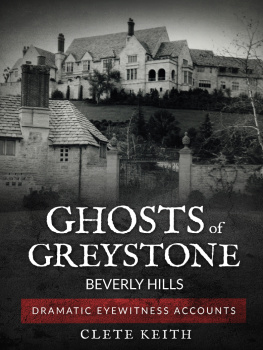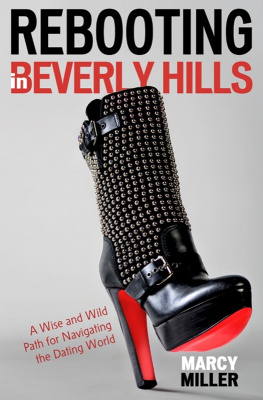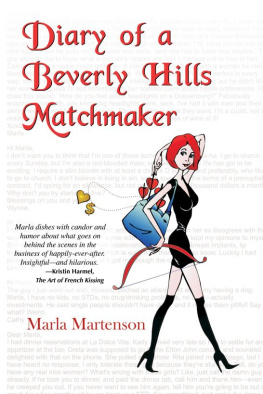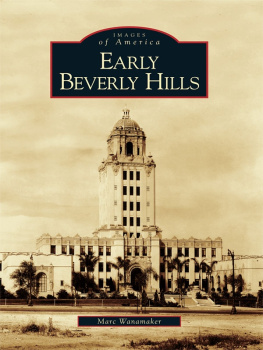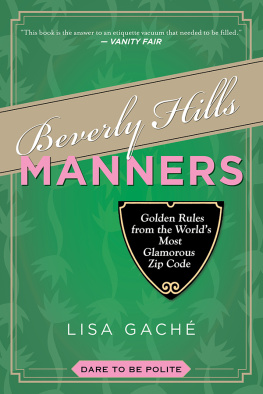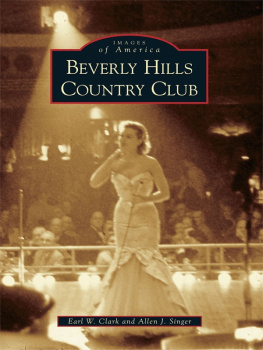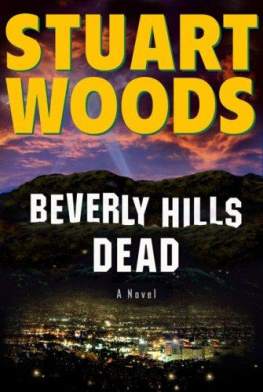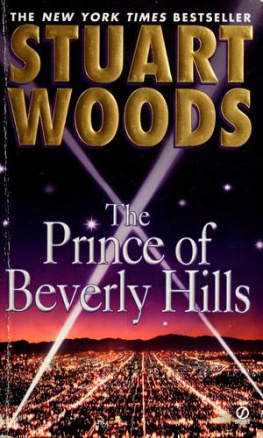Gerald Petievich - To Die in Beverly Hills
Here you can read online Gerald Petievich - To Die in Beverly Hills full text of the book (entire story) in english for free. Download pdf and epub, get meaning, cover and reviews about this ebook. year: 2010, genre: Detective and thriller. Description of the work, (preface) as well as reviews are available. Best literature library LitArk.com created for fans of good reading and offers a wide selection of genres:
Romance novel
Science fiction
Adventure
Detective
Science
History
Home and family
Prose
Art
Politics
Computer
Non-fiction
Religion
Business
Children
Humor
Choose a favorite category and find really read worthwhile books. Enjoy immersion in the world of imagination, feel the emotions of the characters or learn something new for yourself, make an fascinating discovery.

- Book:To Die in Beverly Hills
- Author:
- Genre:
- Year:2010
- Rating:5 / 5
- Favourites:Add to favourites
- Your mark:
- 100
- 1
- 2
- 3
- 4
- 5
To Die in Beverly Hills: summary, description and annotation
We offer to read an annotation, description, summary or preface (depends on what the author of the book "To Die in Beverly Hills" wrote himself). If you haven't found the necessary information about the book — write in the comments, we will try to find it.
To Die in Beverly Hills — read online for free the complete book (whole text) full work
Below is the text of the book, divided by pages. System saving the place of the last page read, allows you to conveniently read the book "To Die in Beverly Hills" online for free, without having to search again every time where you left off. Put a bookmark, and you can go to the page where you finished reading at any time.
Font size:
Interval:
Bookmark:
Gerald Petievich
To Die in Beverly Hills
ONE
The bulletin board in the Detective Bureau was covered with a clear-plastic burglary occurrence chart dotted with red stickpins. Because Beverly Hills was a rich man's city, burglary was the only crime with enough weekly activity to be charted.
Detective Travis Bailey was alone in the handsomely carpeted third-floor office. Rather than the dank, coffee-stained bullpens typically found in big-city police departments, the office was spacious and clean with colorful desk partitions. Rather than brownstone tenements, the window view was of a business district made up of shops that sold ostrich leather shoes, gold toothpicks, furs. Instead of an electric fan wafting stale cigarette and cigar smoke, the bureau was equipped with a modus operandi computer that had been the subject of an article in a police journal, and a bank of modern-looking interview rooms furnished with two-way mirrors and upholstered chairs.
On Bailey's desk was an empty "in" basket and a message-nail piercing a four-inch stack of dated telephone messages. The corners of the stack were squared and each message in the pile bore Bailey's customary red-ink check mark. He slowly opened the desk drawer to avoid disrupting the pencils and other office supplies he kept carefully arranged and took out a perfectly sharpened number-two pencil. He spent some time doodling the name Lee on a pad, then tore the sheet of paper off the pad, wadded it up and tossed it in the wastebasket.
The phone rang. He picked up the receiver. "Detectives. Bailey," he said.
"I'm at a pay phone," Emil Kreuzer said with slightly less of the German accent he affected in his nightclub hypnosis act. "We can talk."
"Was it there?" Bailey said.
"You were right," Kreuzer said. "It's there. The art gallery man has it in his back room. Lee dealt behind our backs. He fucked us. God knows, this isn't the first time. He's probably hit us for something or another on every score. I told you I never liked him. The man is a weasel, a rotten fucking weasel. He stabbed us in the back."
"You've actually seen the item?" Travis Bailey said.
"Do you think I'd tell you something like this if I wasn't sure?" Kreuzer said. "I'm telling you that the same Picasso ink drawing that I saw hanging in the man's living room last week, the same one I noted on my little diagram, is right at this very moment hanging in the back room at the art gallery. The gallery man trusts me because of all the business I bring him, so he even told me what he paid for it. Fifteen thousand. He said it's worth eighty in Europe."
"How do we know that the owner didn't rush down and peddle it five minutes after he saw that his house had been hit?" Bailey interrupted. "Everybody in this town knows how to play the collect-double-on-the-insurance game."
"You didn't let me finish," Kreuzer said impatiently. "I conned the gallery man into telling me who brought it in. I told him that I had part of the action on the score. You know what he said to me? He said, 'That's between you and Lee.' We've been fucked. Let there be no doubt."
Bailey glanced at the door again. He was still alone in the office. "I don't like you to call me here," he said.
"I thought this was something you'd want to know immediately."
Bailey bit his lip as he thought about what Kreuzer had told him.
"What are you going to do?" Kreuzer asked after a moment of silence.
"I'll take care of the problem."
"I'm behind you however you decide to handle it," Kreuzer said. "I want you to know that."
Travis Bailey set the receiver down. Having pulled a tissue and a bottle of window cleaner out of a drawer, he carefully cleaned the glass covering the top of his desk. He tossed the soiled tissue into the wastebasket and returned the bottle to its proper place. He stood up and shrugged on a black-and-white hounds-tooth sport coat and adjusted the crotch of his custom-made trousers.
The telephone rang again.
"Detectives. Bailey."
"This is Jerome Hartmann," said a man with a mellifluous voice. "My home is on Beverly Glen Drive. I'm leaving town for a two-week vacation and I'd like to have someone from the Department stop by before I leave. I'm a little worried about leaving my home unguarded at the present time."
"Are you the Hartmann that is the bank president?" Bailey said.
There was the sound of ice tinkling in a glass. "Yes," Hartmann said, "I take it you recognize my name from the article in today's paper?"
"Yes, sir, I do," Bailey said. "I'm free this morning if you'd like to get together." Bailey used a sharpened pencil to take down Hartmann's address. He hung up the phone. There was a Los Angeles Times on top of a filing cabinet. He turned to the second-page article he'd scanned earlier that morning.
Los Angeles, July 30-Assistant United States Attorney Reba Partch announced today that she plans to call Jerome Hartmann, president of the Beverly Hills Branch of the Bank of Commerce-Pacific, to testify as a witness against reputed Mafia figure Anthony Dio and three accomplices who allegedly conspired to force Hartmann to substitute counterfeit money for money held in the bank's vault.
The scheme, which was aided by a bank teller supposedly enlisted by Dio, was thwarted by Hartmann when he reported the incident to U.S. Treasury Agents. At their request, he agreed to wear a recording device when he met Dio's men at a later meeting.
"The government plans to show an organized crime conspiracy attempting to defraud the bank of millions of dollars by the use of extortion and counterfeiting," Partch said.
Having read the article, Bailey tossed the newspaper back on the cabinet and proceeded to the men's room. He washed his hands thoroughly with soap and water and ran a comb through his hair. Standing in front of the mirror, he fiddled his silk necktie into place and brushed off his sport coat. Knowing he looked his best, he posed his right profile. He knew that his clean features, parted dark hair and powerful jaw line (which he considered to be his best feature) gave him the look of the archetypical young screen detective. Why not dress the part?
Before leaving, Bailey stuck his head in Captain Cleaver's office. Cleaver, a bald, well-fed man with a cocoa tan nourished by year-round weekend visits to his Palm Springs condominium, looked up from a copy of the Wall Street Journal. He arched his eyebrows. "Heard anything?" Bailey said in a tone of deference.
Cleaver's eyes returned to the newspaper. "Delsey Piper can start in the Detective Bureau next Monday," he said without expression. "The Chief bought the undercover anglesays he likes the idea of having a female detective. After I walked out of his office he called up that woman on the City Council and told her it was his idea to bring the first woman into the Detective Bureau. His secretary told me."
"You won't be sorry, Cap," Bailey said. "With a woman working undercover we'll be able to make some heavy cases. Burglars and receivers are wise to the undercover bit, but not with a woman. I guarantee lots of stolen property recoveries."
Cleaver turned a newspaper page. "There'd better be a lot of recoveries," he said without looking up. "Every officer in this department is going to be pissed off at a female with barely a year's experience in a radio car being promoted to detective. I'm not looking forward to all the moaning and bitching I'm going to have to take over this. I expect you to make sure she doesn't fall flat on her ass," he said, glancing pointedly at Bailey. "I don't need any Dickless Tracy problems."
"I'll keep her under my wing," Bailey said. "I guarantee lots of recoveries." He winked.
Cleaver grinned sardonically. "Now that you mention it, it is a real shame to see the insurance companies having trouble using up their stolen-property-reward funds."
Font size:
Interval:
Bookmark:
Similar books «To Die in Beverly Hills»
Look at similar books to To Die in Beverly Hills. We have selected literature similar in name and meaning in the hope of providing readers with more options to find new, interesting, not yet read works.
Discussion, reviews of the book To Die in Beverly Hills and just readers' own opinions. Leave your comments, write what you think about the work, its meaning or the main characters. Specify what exactly you liked and what you didn't like, and why you think so.

